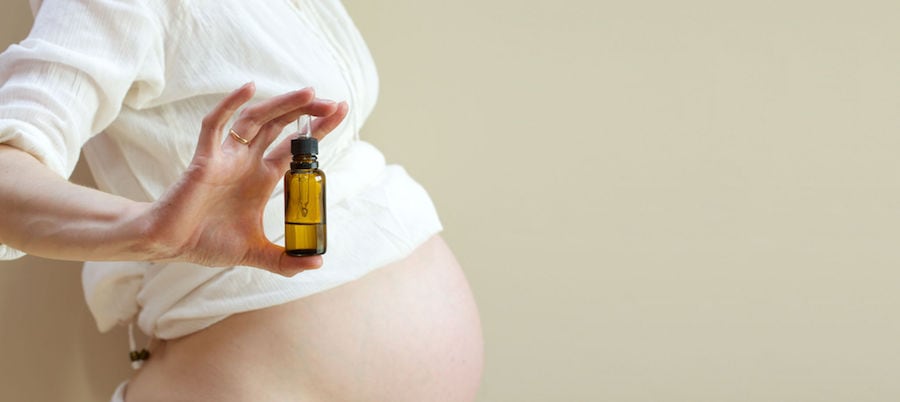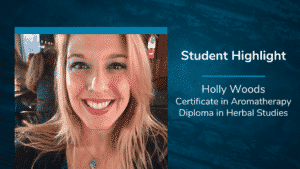 Essential oil safety is something everyone should be very clear on, from the aromatherapy novice to the expert. You don’t need to be an aromatherapist to practice basic safe use, but you definitely need to know where to look to find reliable, credible information.
Essential oil safety is something everyone should be very clear on, from the aromatherapy novice to the expert. You don’t need to be an aromatherapist to practice basic safe use, but you definitely need to know where to look to find reliable, credible information.
There are people in very specific age groups and conditions that need to pay extra close attention to safety issues. Pregnancy and lactation is one of those times. We know that chemical constituents in essential oils pass the placenta, even though only in minute amounts, so safety needs to be addressed. That’s why I’m very excited to be presenting a webinar on this very topic on Tuesday, February 7th, from 11-12 PST. I hope you can join me!
In the meantime, here are my five basic essential oil tips for pregnant and/or lactating mothers looking for credible information regarding safe use:
1. Unless working with a trained aromatherapist, avoid using essential oils during the first trimester.
Pregnancy carries with it some very special considerations during the first trimester. The placenta is developing, blood cells are formed, and the entire central nervous system, brain, and heart take shape (among many other things). Certain essential oil constituents can be toxic to the growing fetus, so it’s important to be well aware of safety concerns.
Tip: The best resource available for the effects of essential oil constituents on the growing fetus is Robert Tisserand’s, Essential Oil Safety 2nd Edition.
2. Be specific.
Essential oil use should be individualized based on the mother’s previous pregnancy history, current medical condition, and any current medication (allopathic, herbal, or otherwise).
Blanket recommendations or testimonials for ailments during pregnancy are all over the Internet. Take it upon yourself to learn why neither of these are a good idea, and what you can do to arm yourself with information specific to you and your pregnancy. Certain medical conditions and medications carry with them very specific contraindications for essential oil use. We are all very unique individuals; blanket recommendations and testimonials can lead to dangerous situations for expectant moms.
Tip: If you are taking medication or have a specific medical condition, it is recommended to seek out a trained aromatherapist before using essential oils. Follow the link to find an aromatherapist near you: http://naha.org/find-an-aromatherapist
3. Learn the myths surrounding essential oil use during pregnancy and lactation.
There’s a lot of confusion between the action of an herb and it’s essential oil counterpart in regards to pregnancy and lactation. In my upcoming webinar, we’ll discuss this myth along with a few others you may have seen on the Internet or on social media.
Tip: Herbal remedies can be very useful during pregnancy, as long as you know you have a quality, trusted resource to obtain your information. The following book is not solely about pregnancy, but is very thorough: Medical Herbalism, The Science and Practice of Herbal Medicine, by David Hoffmann, FNIMH, AHG
4. Learn why the internal use of essential oils should be avoided during pregnancy and lactation.
Using essential oils internally seems to be a forever-growing trend on the Internet and on social media. Learn why this is never a good idea during pregnancy, or any other time without speaking to an aromatherapist trained in aromatic medicine. There are many alternatives, and we’ll discuss these options in the upcoming lecture.
Tip: Keep in mind that due to safety and ethical reasons, essential oil research can’t be performed on pregnant women. Therefore, internal use during pregnancy is simply too risky.
5. What, when, where, and how much?
Just because expectant mothers need to practice caution when using essential oils, doesn’t mean everything is off limits! There are quite a few ways expectant mothers can still enjoy aromatherapy-in my webinar, you’ll learn what a few of those are as well as proper methods of use, dilution rates, and more.
Tip: A great resource for aromatherapy during pregnancy and beyond is, Aromatherapy for Health Professionals, by Shirley and Len Price.
{{cta(‘83056ca3-a4d5-4528-8ef7-de6a512a3b49’)}}
This article is for informational purposes only. It is not intended to treat, diagnose, cure, or prevent disease. This article has not been reviewed by the FDA. Always consult with your primary care physician or naturopathic doctor before making any significant changes to your health and wellness routine.
Disclosure of Material Connection: I am a graduate of American College of Healthcare Sciences, the Institution that publishes this blog. However, all opinions are my own. This blog may contain affiliate links. I am disclosing this in accordance with the Federal Trade Commission’s 16 CFR, Part 255: “Guides Concerning the Use of Endorsements and Testimonials in Advertising.”
Resources
Hoffmann, D. (2003). Medical herbalism: the science and practice of herbal medicine. Rochester, VT: Healing Arts Press.
Price, S., & Price, L. (2012). Aromatherapy for health professionals. (4th Ed) Edinburgh: Churchill Livingstone/Elsevier.
Tisserand, R., Young, R. (2014) Essential oil safety: a guide for health care professionals. (2nd Ed) Edinburgh: Churchill Livingstone/Elsevier.
 President’s Message: End Of Year Reflectionsby American College of Healthcare Sciences●December 31, 2020
President’s Message: End Of Year Reflectionsby American College of Healthcare Sciences●December 31, 2020 Student Highlight: Wife and Husband Team Start New Businessby American College of Healthcare Sciences●December 22, 2020
Student Highlight: Wife and Husband Team Start New Businessby American College of Healthcare Sciences●December 22, 2020 Student Highlight: Holistic Health, Gratitude, and Smoothies |achs.eduby American College of Healthcare Sciences●December 17, 2020
Student Highlight: Holistic Health, Gratitude, and Smoothies |achs.eduby American College of Healthcare Sciences●December 17, 2020 3 Tips For Building Better Habitsby American College of Healthcare Sciences●December 10, 2020
3 Tips For Building Better Habitsby American College of Healthcare Sciences●December 10, 2020